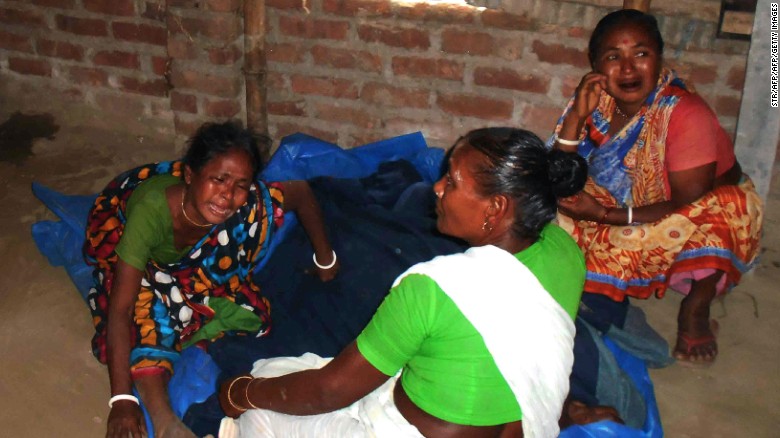| Ugandan President Yoweri Museveni. Picture: Isaac Kasamani/AFP. |
President Yoweri Museveni on Sunday dismissed European Union and US criticism of Uganda's presidential election, telling foreign observers not to lecture him.
Museveni, in power since 1986, was declared the winner on Saturday but Kizza Besigye, his main challenger, who was under house arrest on Sunday, called the election a sham. Another candidate, Amama Mbabazi, said it was “fundamentally flawed”.
The EU observer mission said Thursday's vote had been conducted in an “intimidating” atmosphere. Chief observer Eduard Kukan said it had been undermined by a “lack of transparency and independence” at the electoral commission.
But Museveni, 71, dismissed the idea that the commission had favoured him and his National Resistance Movement (NRM).
“They are wrong, they are not serious,” Museveni told reporters in his country home in Kiruhura, southwestern Uganda. “I told those Europeans ... I don't need lectures from anybody.”
Museveni has presided over strong economic growth but is accused at home and abroad of repression of dissent and failing to tackle rampant corruption. Critics also say he wants to rule the nation of 37 million people for life, emulating other African leaders who refuse to give up power.
Museveni last clashed with Western donors in 2014, when Uganda passed a law that imposes harsh penalties on homosexuality.
Several EU countries cut aid, as did the United States, which also imposed visa restrictions and cancelled a regional military exercise. In total, more than $100 million in aid was halted or re-directed - a significant blow for a country that depends on foreign aid for about 20 percent of its budget.
However, Museveni has also won favour with the West by sending troops to Somalia to battle Islamist militants with ties to al Qaeda.
Former Nigerian president Olusegun Obasanjo, who led a group of Commonwealth observers, said the poll “fell short of meeting some key democratic benchmarks”.
The United States also criticised the handling of the vote and raised concerns about the house arrest of Besigye, who was in detention for the fourth time in a week and alleged that his electronic communication had been blocked.
US Secretary of State John Kerry called Museveni on Friday to voice concern over the harassment of opposition figures and the shutdown of social media in Uganda, where Facebook, Twitter and WhatsApp have faced outages since election day.
“Mr John Kerry rang me and I told him: 'Don't worry, we're experts in managing all those things (elections)',” said Museveni.
Besigye on Sunday urged his backers to demonstrate for his release.
Besigye's supporters clashed with police on Friday when officers stormed the headquarters of his Forum for Democratic Change (FDC). Last Monday, police fired bullets and tear gas towards protesters, who responded by hurling rocks and erecting street barricades.



